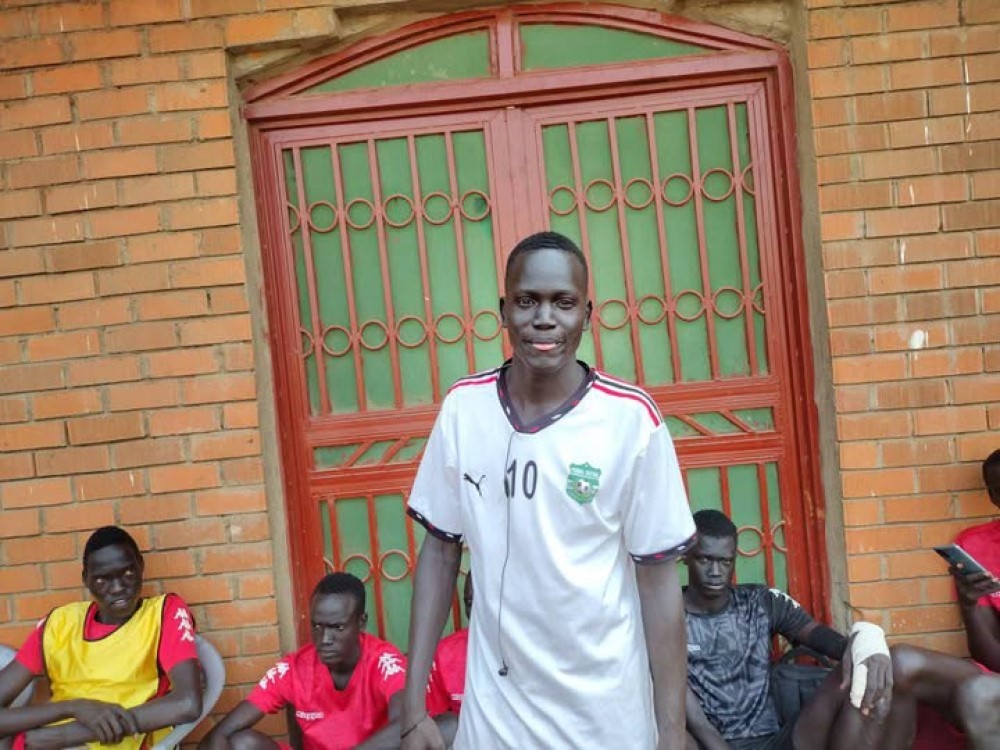Outrage swept through South Sudan when video of a gang-rape began circulating on social media in June. The victim, a 16-year-old girl, was a member of a gang in the capital, Juba. The perpetrators were members of a rival gang exacting revenge.
Few were as disturbed by the incident as Alaak Akuei, a former gang member who works to counter the rising tide of gang violence.
“I was very disappointed,” he told the newspaper The Guardian. “These boys, we are working with them, we know some of them, but they are not listening. But we have to be strong, because we cannot give up.”
Gangs have become emblematic of violence in South Sudan in recent years, as assaults, theft and street fights between rival factions are common sights in Juba’s densely packed neighborhoods. So, when authorities responded to the gang-rape video with a weeklong, citywide crackdown and the arrests of 623 suspected gang members, it focused much-needed attention on the problem.
South Sudanese Bishop Eduardo Hiiboro Kussala called the incident “a cry … a symptom … a sign that something profound and dangerous is unfolding in the soul of the nation.”
“Gangs, violence, addiction and trauma are spreading silently,” he wrote in a letter shared with Fides news agency in September. “Juba is just the tip of the iceberg. We are sitting on a time bomb of youthful anger and disintegrating families, ready to explode.”
Former gang member Peter Amule was unmoved by the police response of mass arrests, noting that more than half of the suspects were released without charges.
“You can’t stop this gang stuff by force,” Amule told The Guardian. “You need to use love.”
Amule, 35, works with Grassroots Empowerment and Development Organization (GREDO), a nongovernmental organization supported by UNICEF, using his home as an informal gathering spot.
A dozen boys ages 15 to 20 shared similar stories of how, lacking jobs and money, they dropped out of school and joined gangs to start stealing. Once they were in, it was extremely difficult to leave, as they feared for their safety.
After 14 years in a gang, Amule found a way out in 2016.
“For you to leave a gang, there are conditions,” he said. “In my case, I had to buy [the leaders] a motorcycle so they could set me free.”
Akuei, 24, joined a gang when he was 13 and found a role as a fighter. “It was like a war, but we couldn’t really tell why we were fighting the other groups,” he said.
Five years later, he got out by paying off his gang’s leaders and began working to help others in the same predicament. Akuei opened the Young Dream Football Academy, where he and other former gang members he recruited coach 900 boys.
He believes that school support and fostering a feeling of belonging are the best ways to counter the lure of drugs and violence.
“We need to engage them so that they’ll be busy, and they focus on education,” he said. “These kids, all they want is to feel loved, and to feel that they belong. Football can give them that.”
Like Amule and Akuei, GREDO social worker Peter Sakaya believes that South Sudan’s history has created an atmosphere of pervasive violence, as decades of war have taken a toll on families.
“Most of these children come from traumatized families,” Sakaya told The Guardian. “Their fathers are soldiers, and they’re either dead or absent because they’re deployed far away. Some have already run away and are living on the street. Others are experiencing a lot of abuse at home, so they come here to find people they can speak to.”
Kussala agreed with Sakaya’s assessment, adding that peace in South Sudan always has been fragile. Fighting between rival ethnic, communal and political groups flares up frequently.
“We have raised children in trauma with no peace, no bread, no fathers and no direction,” he wrote. “We have normalized violence, and now our children inherit it as culture.”
To begin unraveling the crisis, he called for reform of the police and justice system along with the creation of safe zones throughout the country, and educational centers where religious leaders could engage with young people and their families.
Sakaya said that recruiting ex-gang members, former street children and survivors of sexual violence to work with young people is one of the keys to GREDO’s approach.
“The most important part is the emotional connection they establish with the youths, which allows for change to take place,” he said.

